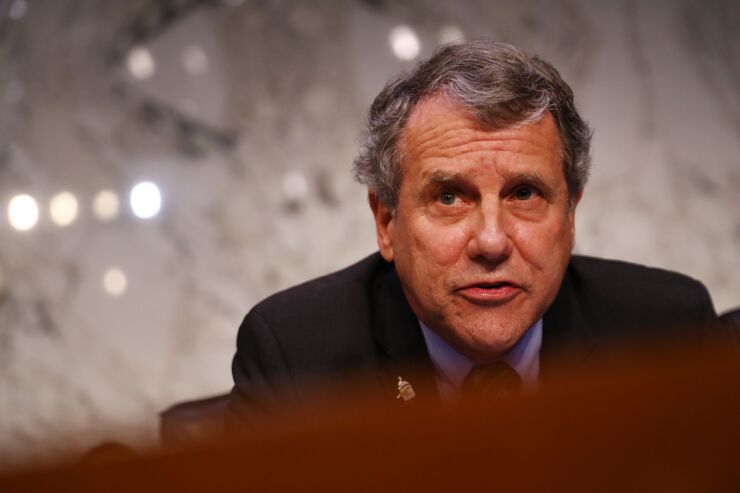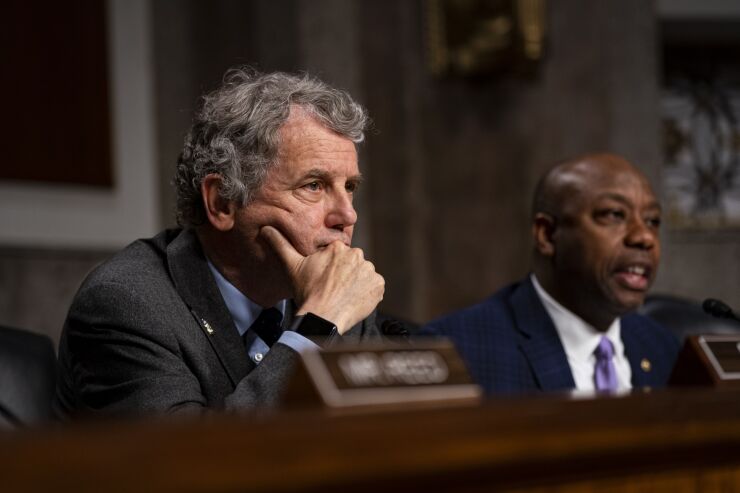
WASHINGTON — The Senate Banking Committee sent its
Only Sens. Thom Tillis, R-N.C., and Bill Hagerty, R-Tenn., voted against the bill.
"I still think it's too expansive," Tillis said during a markup for the bill on Wednesday. "We're not making the distinction between bad management decisions and management malpractice."
The panel did not vote down any amendments, instead relying on the lawmakers that offered them to withdraw.
"The RECOUP Act is a reasonable compromise that significantly improves the oversight of bank executives," Warren said during the markup. "Every member of Congress in the Senate and House should support it. I hope we can get this done quickly."

As the lawmakers withdrew their amendments, they signaled that they would be open to passing other bank legislation along those lines in the near future.
"A lot of the amendments that were being offered and withdrawn could be the subject of another bill in the future," said Sen. Cynthia Lummis, R-Wyo., who offered and then withdrew an amendment that would require the FDIC to consult with a failed bank's primary regulator before clawing back executive compensation. "Because a lot of good ideas have been brought to the table and withdrawn today."
The bill now heads to the full Senate, where it's expected to pass with a favorable recommendation from the Senate Banking Committee. It will still need to pass through the Republican-controlled House, where its future is less certain.
"The Committee will take a look at any bill that is advanced by the Senate Banking Committee, including on executive compensation clawback," a spokesperson for the House Financial Services Committee said.
While the Brown-Scott bill is smaller in scope than the one spearheaded by Warren, it still gives the Federal Deposit Insurance Corp. clear authority to claw back the compensation of failed bank executives.
It would give regulators the power to remove senior banking executives who demonstrate oversight misconduct, and would allow regulators to ban those executives from the industry. The bill would set the clawback period at two years, and defines "senior executives" as those who are in a particular institution's senior leadership or serve as internal directors.
"The Committee members agreed that these executives failed at the basics of bank management, they pushed an unsustainable business model because it increased short-term profits and their own compensation, they ignored directives and warnings from regulators, they took risky bets at the expense of their customers and they paid themselves bonuses right up until the moment the FDIC was forced to step in," Brown said. "American workers and their families should not be forced to pay the price for executives' risky bets that don't pay off — whether they're on Wall Street or in Silicon Valley."
Scott said that the legislation is a "commonsense solution to address executive accountability."





